The Hairy Weirdo With the Key Fob
Illustrations by Sydney Franklin
Facebook, November 11, 2020
Just a quick note from the Miller Covid Cabin, where everyone’s positive, to thank you all for the kind words and wishes. We’re still scrapping — for me, this is Day Six with a temp over 100 and the related cornucopia of symptoms — but we know we’re fortunate in the grand scheme of things and hope we’ll be coming around in the days ahead. We’ve got blue Gatorade and chicken soup on our side, so I like our odds.
1. The Roadside
Let’s cut the crap. It’s November 14, and I’ve been told to spend 20 hours a day on my stomach. This is difficult because I have six or so heart monitors taped to my chest, an IV needle in my right arm and a corded blood-oxygen meter taped to my left index finger. Every time I try to roll over on my stomach, I’m ensnared in a deadly Doc Ock thicket of tubes. The tape on my chest keeps pulling out the hair, which is abundant enough to be a source of amusement and annoyance among the nurses, and the needle in my arm torques at unacceptable angles.
In spite of the virus raging swift and merciless across the country, I didn’t expect to find myself in this position. For seven months, my family and I have been careful to the point of parody. Our corona-caution includes an assembly-line ritual of “de-Coviding” the groceries when we bring them to the house. Our son, a college sophomore, is studying at home, 400 miles north of his pandemic-wracked Arizona campus. We’ve tried to be true to the early social principles of the coronavirus era, when we were told we were all in this together.
But in late October, with my son’s number-one national archery ranking on the line and the season’s last tournament just ahead, we take a brief trip to Tucson so he can train with his college coach. The days pass in a state of Covidian grace — quiet walks in the desert with our dog, savory take-out, appropriate social distancing. On our way home, we drive the bright highway past saguaro sacred and profane, around Picacho Peak jutting into the sky like a cartoon cat, through the endlessness of Phoenix and the roundabout spurs of Wickenburg. With a riven nation gearing up for an existential election, campaign signs rise from roadside dirt like mutant wildflowers. We’d love to be listening to music, but we freight our journey with satellite-radio CNN. The dog needs to stretch her legs; we need a bite to eat. We pull onto a gravel driveway where a corrugated-steel hangar houses our favorite roadside cafe. We’ve been coming here for years on our way to and from our son’s tournaments; the owner has become a friend. She makes wonderful pies.
The boy goes in to order a sandwich. There’s no better sandwich on the road from Tucson to Vegas, but my wife treasures this place more for its grounds than its grub. She and I stay outside; we walk the dog through a sweetly overgrown garden, up a little manmade hill with a tiny waterfall. A scarecrow is sitting on a bench. Everything speaks of care, refuge. By the side of the cafe, in the shadow of a tangled mesquite, my wife pours some water for the dog. I go inside to join our son. He’s taken a seat, his mask still on; he waits for his sandwich. We’re tired and this place is peaceful. The owner is not wearing a mask, but the joint is empty until several unmasked men crowd through the door talking loudly about constitutional originalism. One is wearing a red cap with a famous slogan. He says he’s been to a big political rally. My son’s sandwich, which he ordered to-go, arrives on a ceramic plate. My wife appears at the door with the dog; she waves to the owner, and the owner, kind as ever, smiles, gestures to our dog, which she knows well from the passing years, and says, You can bring her in!
Sometimes when I can’t sleep, I picture the coronavirus. The vision is usually abstract — a coil of light in the sign of infinity. But other times it’s entirely concrete: a hairy weirdo…
Now we’re all sitting in the small cafe, a few feet from the maskless men, listening to their latest jurisprudential theories. My wife orders a slice of pie to-go and a cup of tea, but once again the food arrives on a ceramic plate, complete with a scoop of melting vanilla ice cream. We don’t know it yet, but a trophic cascade of small calamities is unfolding. The owner asks my wife if she wants the pie warmed up. Caught in the spirit of the moment — we like the owner, she likes us, the food is good — my wife says yes. The men at the counter keep talking loudly. They know all the news, a certain sort of news. My son has stopped eating his sandwich and strapped on his mask. We wait. A family enters, all noses and mouths: a mother, an aunt perhaps, a couple of little kids, a teenage girl. They form a chatty semicircle around the cash register.
We’ve never seen the place this crowded. It’s an American scene, in some ways the best of America — people of all sorts interacting with a certain generosity, the kind that makes them open with their views and the stories of their daily lives. In ordinary times, it would feel healthy, the sort of social health the internet has robbed us of. We ask for our food to be packed up. My wife and son head outside with the dog; I wait for the crowd around the register to disperse so I can pay. The owner asks me questions I can’t help answering — about the kid’s archery (Number one in the nation!), his school (Three-eight in neuroscience!), how we’re holding up through the Covid era (So far, so good!). I ask her about the business, the family. This sort of engagement is a relic of my earlier self, the one that lived before the pandemic.
We get home just in time to catch the final innings of the World Series on TV. Our beloved Dodgers win for the first time in 32 years. One of the star players, Justin Turner, receives news of a positive Covid test in the eighth inning and has to leave the game. Later, he returns to the field to celebrate with his teammates. He exchanges hugs, pulls off his mask for the team photo. We can’t really blame him, except we can. This season of American life allows no pure sensations of triumph.
A few days later, the first sign appears: my son’s dream, in which newfangled tarantula-lizards devour one another. The next day he’s sick. A day after that, his Covid diagnosis arrives. There will be no final tournament of the season, no number-one ranking for the year, no spot on the junior national team.
By the end of the week, my wife and I learn that the virus has gotten us, too.
2. Norm
The doctor visits my room and says I came to the hospital in the nick of time: One more day and I’d have wound up in intensive care with a ventilator tube down my throat. My blood is less oxygenated than a man’s blood ought to be; the little device on my finger is yielding unwelcome data. Here in the Covid Ward you learn that you are a data set. The numbers tell my story, and the story might save my life.
My doctor is not my doctor. He is not on my insurance. Nor is he the doctor assigned to me by the hospital. He is from a previous insurance, from a previous job, in what seems a previous life. He has, it seems, arrived from the past to save my skin. That may sound trite and uncanny, but here’s an example: On my first day at the hospital, when I’m still in the emergency room, I receive the post-chest-X-ray news that I have Covid pneumonia. Half an hour later, I’m told to go home and keep taking Tylenol and ibuprofen. I call my wife to pick me up, and she’s on her way when a nurse rushes into the room: “You’re staying! Dr. Notyourdoctor heard you were going home and he looked at your numbers and said, ‘No way.’”
The numbers told a story, and it took a sensitive reader to grasp what the story said. By nightfall, I’m on an IV with the antiviral Remdesivir flowing into me. Convalescent plasma joins the battle, and a steroid called dexamethasone, and antibiotics to ward off secondary infection. And on my finger that little blood-oxygen monitor, cleverly branded “Covidien,” feeds the numbers that fill the story. I’m told the blood-ox should be above 95 percent; it drops into the mid-80s. Stories generally get worse before they get better, although sometimes they don’t get better.
Tonight, I am not on my stomach. I am trying to be there, but I am failing, gasping, sleeping, waking, dozing. The comedian Norm Crosby enters my dreams. He tells me to turn the hell over and get on my stomach. Norm’s prime was before my time, but I remember him well from the time that follows a comedian’s prime, the time when he made a home in a lighted box on Hollywood Squares, dispensing acerbic wit while I was home sick from school on some cozy Tuesday morning. He always seemed a little bit mean, and tonight the mean guy is raising his voice to save my life. Later this week I will tell a friend about this experience, and the friend will tell me that Norm Crosby died on November 7, seven days before I arrived at the hospital.
3. Weirdo
Sometimes when I can’t sleep, I picture the coronavirus. The vision is usually abstract — a coil of light in the sign of infinity. But other times it’s entirely concrete: a hairy weirdo, Rasputin with a shopping cart, who’s found a remote key fob and is stalking the parking lot hitting the little button with a twitchy thumb. This is no ordinary fob; it’s a skeleton key. It knows your code and your neighbor’s code and certainly mine. Alarms howl like wolves; cars start without permission from their drivers. Some cars won’t let themselves be hijacked; the doors open but the engines won’t start and the weirdo moves on, leaving his business card in the crevice between seat and seatback. Other cars are more accommodating: The weirdo cozies up behind the wheel and drives. Off the road, off the cliff, into the hospital, straight to the morgue. There are no rules for such joyrides. Even the cars that weren’t hijacked still carry the card, tucked away, a license to kill.
The weirdo’s code works in different ways on different hosts. Its first move, though, has a clinical consistency: It makes you somnolent as a night commuter, stumbling through days in which all that is easy becomes hard and all that is joyful melts away. It also makes you sweat. In the four days between Election Day, when my son tested positive, and the day Joseph R. Biden was projected as the winner, by which time my wife and I had also gotten Covid’s vote, I watched the fever roll over my family like a red wave, or a blue one, depending on who’s counting and when. Fever, chill, fever, chill, fever, chill, two blankets, no blankets, cold Gatorade, hot chicken soup, my body can’t decide on a narrative. I camp on the couch, looking out the window — it’s Las Vegas in early November, which is to say, Eden. Why am I so cold so hot so cold? My son is in the big chair next to me, grinding his way through organic chemistry via laptop. His temperature hits 101.4 degrees Fahrenheit and stays there for a week; my wife’s hits 101. We take turns adorning our index fingers with the pulse oximeter, hoping to stay above the magic 95. My wife’s number hovers around 93; mine plummets to 91. The kid’s taste and smell disappear, but not before an interim period when he can smell only burnt rubber and sweat. My wife’s throat goes scarlet; her tonsils swell like Albert Lamorisse’s red balloon. My temperature rises, in a lovely inexorable curve, toward 102 over the course of nine sweaty days, at the end of which I am deposited in the hospital.
Once Key-Fob Rasputin gets me, I can’t stop coughing. The cough comes when I am walking up a flight of stairs, or standing up after sitting down, or saying hello on the telephone to the people who call and say, “Rest up!” The cough, when it comes, feels like it will be always and forever, everywhere and nowhere. Life cannot continue without the cough, so I’ll just keep coughing. My head goes tingly as the oxygen leaves, my legs shake, the screen behind my eyes is suffused with blinding light.
Then, more interesting and uniquely individual things begin to happen. My back hurts, then it hurts more. My back is prone to hurting, but now it hurts as if I’ve told a new acquaintance, “I have a bad back,” and the acquaintance has responded by kicking me in the back. Covid, the hairy weirdo, will do this to you because Covid knows your code. Like Amazon, it reads your data and personalizes its suggestions and deliveries. If you are the sort of person whose back hurts, you may spend several nights in the hospital wondering if you’ve come in for a pulmonary disease or a disc procedure. This will pass. Covid is having fun flipping your switches. The sooner you realize your switches are being flipped, the sooner you can mentally flip Covid off. Not that Covid will care.
4. Words
The problem with resorting to mind over matter, when it comes to the virus, is that the mind is matter, and the virus is toying with it. Covid knows not only my weaknesses, like my back; it also knows what I consider my strengths, like my words. So after kicking me in the back, it slugs me in the words. The weirdo’s battle strategy is to multiply my words until I no longer like words at all. Words flood my mind, all day, all night, day after day, night after night. Some of the words are imagined dialogues in which I try to explain myself to someone in the wake of some mysterious misstep. Others are mental rehearsals of insipid social-media updates. How many ways can I tell you I’m blessed before you start to smell something fishy?
“I am a sick man,” Dostoyevsky wrote. He didn’t write, “On the mend and soooo filled with gratitude,” because that would have made for a shitty book. I sleep without sleeping; my system is trying to reject both the virus and the saccharine sentences; new words are appearing, astringent, truthful, bitter, unattractive. I am responding in my sleeping-non-sleeping head to a person who the day after my diagnosis spent most of a long telephone conversation repeating versions of the phrase, “But you’re getting better now.”
I am, with great soul-scouring effort, producing mountains of little green pellets, a sort of chlorophyll-infused cat-kibble…
He was not interested in me becoming better, but in already having become better; my lack of better-ness was an intellectual inconvenience. The great policy failure of the Covid era, he told me, was not insufficient containment of the virus, which at the time had killed 240,000 Americans in nine months, but excessive containment. In this conversation — as I gulped back coughs and mopped my brow — I was asked to read the Great Barrington Declaration, a widely publicized libertarian call for America to warehouse the elderly and infirm, tear down the guardrails for everyone else, and let the young and hearty infect one another until the herd is immune. It’s OK, they’ll be fine!
I don’t know where I fit in this scheme. I am neither young nor old. I’m 50, and who the hell knows what that is anymore? Too young to warehouse, too old to run with the herd. Meanwhile, my son — like many sons and daughters his age, most of them with no choice — is not living in some special young-adult world far from the madding crowd of fragile oldsters. He is under our roof; anything he acquires, we too will acquire. And, for all his caution, acquire it he does, and acquire it we do. And what he acquires is not merely a “positive Covid test” — the Barrington fantasy of young folks getting all the immunity and none of the pesky illness — but Covid itself, slowing him to a halt for nearly a month.
The Great Barrington Declaration addresses the pain of Covid restrictions but goes easy on Covid itself. Released in October, when America should already have known better, the Declaration leaves masks unmentioned, ignores the inconclusive science on reinfection and tunes out the inconvenient facts of herd living in the age of Covid: Illness short of death wreaks real havoc in real human bodies. People of all ages suffer and die, especially low-income essential workers and their neighbors in the communities of color where they disproportionately reside. Above all, the Declaration rejects the common bonds of civilization: We may strive as individuals, but we live together; your fate is in my hands, mine is in yours, one nation, indivisible.
You are the herd, I am the herd, we are the herd. Someday, God willing, we’ll all be immune, but why are people so anxious to make us immune that they’re willing to kill us in the process? It’s the foolish divorce of policy from reality, the kind of thing conservatives are supposed to oppose.
Words, nothing but words.
5. Shit
I’m waiting in an ER bay, an hour passes, then three, then Key-Fob Rasputin hits the previously unexplored gastrointestinal-distress button. He leaves me no time to adequately respond. Now I need an extra set of undergarments.
After I’m admitted to the hospital and given my ceremonial split-back gown, I call my wife and ask if she can make a delivery. My wife, recall, also has Covid; she’s dealing with her own Rasputin. Nonetheless, she sets out with a little red drawstring bag full of emergency clothing. While she’s on the road, I receive a call from a friend in Poland, a writer I haven’t spoken to in seven years. He doesn’t know I’m in the hospital; it’s a total coincidence that he should call me today; it’s a pleasure to speak to him, a distraction from my fever, my lungs, my intestines. We talk about the books my friend has published and the unpublished one I’ve just spent six years writing. By the time I get off the phone, there are five emails from my auto insurance company about the accident my wife has gotten into.
A nurse appears with a red drawstring bag. My wife persevered; she made it to the hospital in our crumpled car. She is a hero; most importantly, an uninjured hero. I call her and her brain is ablaze with anxiety. The weirdo with a key fob leaves a trail of misfortune: Covid, it seems, is the proximate cause of Everything. I try to take a deep breath, release a torrent of hacking coughs, and briefly, too briefly, fall asleep…
The ward is quiet, the hour is late, the lights are out. My eyes are closed but I am neither sleeping nor lying down. Abstract visions have shoved Rasputin aside; I’m just delirious enough to escape the world of words and narratives and metaphors and political debates about the mask-aversion of the Great Asymptomatic Masses. Willful Mass Delusion, the new WMD, is exterminating us by the hundreds of thousands Out There, but I am In Here, and I will close my eyes and push hard for survival. I see the dark of night, the bottomless universe, then lines of light, figure eights, infinity signs, inscrutable signatures, the John Hancocks of an unknown cosmos. The scribbles always recede, falling away from my eyes into a nothingness beyond my reach, a place where I cannot follow, because the map of my world no longer goes outward or inward, but only downward. The toilet seat is uncommonly cold the first trip of each night, but it quickly becomes warm because I can’t leave the damn thing.
I am, with great soul-scouring effort, producing mountains of little green pellets, a sort of chlorophyll-infused cat kibble, mixed with occasional swirls of equally green ribbon-like material. Could it be that the vision behind my eyes is mapping the vision beneath my ass, a design that will also soon (please let it be soon), be pulled into the infinite nothingness of an unseen underworld? I’m sorry, you probably didn’t come here to talk about shit. But that’s the title of the chapter, so what did you expect? The most remarkable characteristic of The Great Emptying is that you are never empty. You feel hollowed out, wrung like a washcloth, but the supply is unceasing, the bladder and bowels manically resupplying themselves like the Pentagon in boomtime.
One of the fringe benefits of Covid is that, during the Great Emptying, you cannot smell a thing.
6. Friends
I did not read much in the hospital, which is a shame because I thought a hospital would be a great place to read. I also did not watch too much TV, although I did catch the tail end of Gaslight one day. It seems most of my time was spent answering texts from people who wanted me to relax. The task of the sick person, in the age of the omnipotent cellphone, is to be one’s own full-time PR agent, thumbs on screen spinning tales of how grateful one is to have such lovely friends and not to be dead. And I am grateful to have such lovely friends and not to be dead. The problem is that I am other things, too. My job was to keep those other things locked deep down inside, close to where one keeps childhood embarrassment and mixed feelings about the parenting skills of one’s parents. I tried, I really did, but the friends just kept coming, like empathetic predators who won’t let go until you’ve told them what they don’t want to hear. They care about you right up until the moment when you compromise your commitment to stoicism. Then they’ve got you; the warrior becomes the weakling.
“How you doing?”
“Hanging in there!”
“What do the doctors say?”
“It’s going to take a while, but I’ll come around.”
“Great! Glad to hear you’re on the mend.”
“Well, I wouldn’t say I’m on the mend quite yet.”
“Why? What’s wrong?”
I told one interlocutor about the call from Poland and my wife’s accident and the mounting expenses for the car and the life and the non-covered doctors who were keeping the life going and I mentioned that — since my visiting assistant professorship has expired and degraded into adjunct-hood and professional journalism has expired and degraded into memes and my book is insufficiently topical for our topical era, when literature is supposed to be some sort of curative cream — yes, I mentioned that because of all of these things I might have to sell the house. My friend decided this was a good time to lecture me in a series of long texts about my tendency to catastrophize. He encouraged me to seek cognitive behavioral therapy. While my friend may have been right, my thoughts, at that moment, went something like this: Fuck off.
That would be the movie version of what I said. Instead, I thumb-typed this: You’re one of my best friends, the one who, when he asks how I’m feeling, should expect a real answer. What I grasp but don’t express is that nobody, not even the dearest of friends, wants a real answer and that, therefore, nobody should be expected to deal gracefully with a real answer, because real answers are, each in their own way, unanswerable. Where the hell is someone supposed to go when you tell them that you feel like you live in a house of cards and that the suicide king on the rooftop is caving in on you? You sound like a complainer in a world of corpses, and if you’re really in the market for frankness, someone is going to tell you so. Especially a friend.
I’m sick of the discourse of hashtag-gratitude, but I’m not an ingrate. I’m grateful for the nurse who wakes me at 3 a.m. to take my vitals, and for the one who tells me she’s lost two colleagues to Covid but feels called to this work, and for the one who brings my “cardiac breakfast,” which consists of a single piece of toast with a drizzle of something red. I can’t figure out why I’ve been put on the cardiac diet and why last night’s dinner was a 2-inch-by-2-inch square of undefined meat in a sticky brown sauce whose flavor is best described as “ineradicable,” but I’m grateful anyway. Today my cardiac lunch is a tasty little rectangle of tilapia. I didn’t know I liked tilapia. “Live and learn,” the nurse says. The nurses know best. The nurse who travels the country from hotspot to hotspot knows best. The nurse who opened an orphanage in Uganda knows best. And the one who finally takes out the razor, tells me that the monitor patches are never going to stick unless we do this, and proceeds to shave six or so circular patches on my chest, well, she knows best, too.
After six days, they send me home. I’ve passed my walking-around-and-breathing test, so they don’t even have to freight me with an oxygen tank. My legs feel vaporous, like half-imagined things that hold me up only by the force of my faith in all things imaginary. I’ve put on a pair of shorts; when I get home I notice that there is indeed a lot less of my legs than there used to be. This will take a while, the doctor tells me. What he doesn’t tell me is that the shit is just beginning, that the weirdo still has the remote, and that my life, blissfully on hold for six days with the exception of my text-thread spin-doctoring, is about to reinvade the space I’ve reserved for illness.
7. Agency
Three days after the hospital released me into the wild, I woke up with a commitment to resume the process formerly known as “living.” Downstairs, in the little room that serves as my office, I looked at the knee-high stack of drafts on the floor and resolved to get my damn book published. The book, at some point, had become the measure of me, in defiance of all other measurements. But I couldn’t bring myself to send it out; my dues, in some strange way, had not been properly paid. There was this thing I wanted, but I didn’t deserve it. I’d written 22 versions of a pitch letter, none of which I liked. But things had to be different now. I was a Covid Survivor™, after all; my karma was ready for its close-up. So I wrote a new letter and it was good. The clouds opened, the sun shone through, I breathed in deeply and coughed like a Balzac consumptive. I caught my breath: I’ve done it; I’ve finally done it!
My friend decided this was a good time to lecture me in a series of long texts about my tendency to catastrophize. He encouraged me to seek cognitive behavioral therapy.
To determine if I had, indeed, done it, I decided to email the new letter to an old professor, a thoughtful and knowledgeable man distinguished above all by having written this to me two decades ago: “You are on the cusp of a notional, original voice, one that brings to mind the brothers Barthelme, Kafka and, dare I say, Beckett. If you are patient, you will achieve discovery and perhaps explosive results.” I’d been patient for the entire 21st century; maybe my dues had finally been paid. I hit send, hopes high. My stomach was churning but I chalked that up to the Covid.
That evening we were watching the final episode of the TV series The Queen’s Gambit. The lead character, a brilliant and ferociously determined chess savant named Beth Harmon, had lifted her piece — I really ought to remember what piece it was — for a final move against the Russian champion. Would she vanquish him or would she commit a mental error that would send her into a swirl of self-destruction? She was on the verge of explosive results. Just then the landline rang, we hit pause, and my father began asking me how I was feeling. I was feeling neither particularly good nor particularly bad, which in itself was an achievement, if not an explosive one. He kept asking, because he cares, and I kept answering because I care that he cares. Soon the conversation lost its purchase on actual information and became a sort of audio shadow play of mutual anxiety. At this point, I looked at my cellphone, where I’d just received an email from my old professor that began with the words, “Sorry to have to report my belief that you’d be lucky indeed to have anyone read your query letter all the way through, much less invite you to submit the manuscript.”
By the end of the letter, which got no better, I realized that my father was still speaking to me on the phone. “I have to go,” I said. Generally our calls have a long off-ramp, one so long that it loops back onto the freeway and continues clear to the next exit. New anxieties are addressed, educational choices are questioned, entire career paths are deemed misbegotten. Not this time. Just, “I have to go.” I left my wife and son on the couch and poor Beth Harmon on the TV screen, frozen with that damn whatever-piece-it-was poised over the board. I walked up to the bedroom, tried to sleep, stayed awake, came downstairs saying fun things like, “It’s over” and “I’m done.” I also said less fun things. I picked up my stack of coil-bound drafts to dump them in the recycling bin, but my wife wouldn’t let me. So I put on a parka-vest and went to the door. Because it was cold outside and I was three days out of the hospital with Covid pneumonia, my wife said, “You can’t go.” But because it was clear that my mind was overheating, my son said, “He has to go.”
And I went.
It’s well past 11 p.m.; the moon is bright, off-balance, bulbous, a waxing gibbous in the process of revealing its larger truth, whatever that is. It’s one of those suburban nights where light pollution from the city down the road has knocked out the stars and made everything paradoxically darker. I’m walking fast, much faster than when I walk the dog. My lungs complain, an internal whistling, a silent recoiling from the night. I reach the first intersection, home to a grass patch we call “Barstow,” because it’s the place our dog pit stops on the way to the next intersection, where there’s a park we call “LA.” Our mental map is built around the possibility of leaving the desert, but I fear we won’t be delivered until we’ve wandered our 40 years. We often reach Barstow and turn around, but tonight I’ll march clear to LA, presumably a better place for a writer to land. I feel strong and weak at the same time — strong because I’m moving on these depleted legs, breathing into these depleted lungs, defying the virus that says I shouldn’t go on, the professor who says I can’t go on, and obeying only my stubborn will to go on. Beckett! He compared me to Beckett! I’ll go on, do you hear me?
If you’re on the path, you can indeed hear me, because I’m talking out loud. I’m beginning to reason with myself. Back in the house, looking into the mirror, I told myself I wanted to die. This of course is a reprehensible thing to say, particularly over a trifle like a book, and especially when the medical profession has just gone to great lengths to save you. Have I no gratitude? Think about all the work those people put in! And yet I feel myself receding into the void like my blazing infinity signs or my piles of shit. The void swallows the labor of six years (this book) then of 20 (there were others, undiscovered and undetonated, books and stories and scripts, notional in voice like the Brothers Barthelme and Kafka and, dare I say, Beckett). The mind, particularly the type that has tricked the body into living the life of the mind, is a terrible nag. Selfish thing, voracious, ambitious, unquenchable. When you’ve promised your mind that you’ll live the life of the mind, it expects you to follow through, with discovery and explosive results. And it fears one thing even worse than failure: fraudulence. The mind gets pissed off when it learns you’ve been lying to it all along about its abilities. So, yes, I said a terrible thing in front of the mirror, and you now understand what was behind such words: the subtle psychological reality that I’m a fucking nut.
I must be a fucking nut, I can’t be a fucking nut, I’ll be a fucking nut. In some cases, these things are a conscious decision. As I pass the last lamp on the path, cross the second intersection and walk onto the dark damp grass of our little LA, I think about making a different decision about my nut-hood. I go to the playground and climb to the top of the jungle gym, a nutty thing for an adult to do at midnight, and I pray. In this prayer I repent for saying I wanted to die, because of course I did not want to die, except maybe in the moment of utterance, when it seemed a just punishment for fraudulence, or at least the type of peaceful possibility that seals off other possibilities, which at that moment, but only at that moment, seemed irredeemably unattractive. Now the other possibilities seem plenty attractive, including the possibility of going home and sitting back down on the couch with my wife and son and seeing where Beth Harmon puts that chess piece. I finish my prayer, looking out toward the lights of the city under the starless sky and the pregnant moon. I thank God for everything — for earth and space, for family and friends, for life and letters, for Him, and even, dare I say, for me. I’ll go on.
By morning, I am sick. I had not stopped being sick, but I had become a little less sick. Now I’m a little more sick. And with each passing day I get sicker. My stomach emerges into full rebellion, as if some gibbous moon within me has burst with sickly yellow light. It bursts in the morning, in the midmorning, in the afternoon and all through the night. Neither my bowels nor my bladder will empty in a lasting manner. I leave an ineffective box of generic Imodium on my bathroom counter for a day and when I pick it up the word “diarrhea” is branded in blue on the white surface. I cannot scrub it away. The glowing infinity signs are back before my eyes. My skin tingles as if I’m wearing a wool bodysuit. My face feels masked even when I’m not masked. My scalp rises above me as I sit on the cold oval and empty all that I am, all that I was, all that I will be. I’ll go on.
Four days pass before I call the doctor-who-is-not-my-doctor, the one who saved my life, and he tells me to get to the emergency room immediately. Blood is drawn, then more of it; I urinate into a cup; I have more than enough; there is always more. After four hours, I am released again. The doctor-who-is-not-my-doctor is not at the hospital, but he’s got the test results. I talk to him on the phone while I wait in the parking lot for my wife and son to pick me up. I have anemia, liver-function problems, malnutrition, dehydration and something else I can’t remember. He prescribes new medications, gives me new marching orders. I’ve got to get home and back to the battle at hand, in which the enemy is not the old professor or my book or the publishing industry or my friends or my phone or the president or God or even myself. The enemy is the weirdo with the key fob. He knows how to push my buttons. And he’s winning. OK, Covid, I get it now. It’s just like Beth Harmon said after she’d finally put down that chess piece and conquered the Russian grandmaster and gone out into the street and sat at a sidewalk board opposite an elderly stranger, perhaps an old professor, yes, it’s just like she said: Let’s play.
Facebook, December 18, 2020
Fifty-first birthday, 51 days after the coronavirus (anagram: carnivorous) started snacking on my cells, five straight days of feeling pretty decent. Sounds like time for a slice of cake, a word of thanks and a wish for better days ahead — for all of us. So: a word and a wish to my wife and son who, though they too were sick, were there for me through every anxious day; to my friends, ever relentless with their good wishes; to the doctors and nurses who saved my skin not once but twice. Five straight good days! What can you do but drop to your knees and look to the sky? You shake your opponent’s hand — “Well played, Covid.”
Then you wash your hands, ready for whatever comes next.
Help us sustain independent journalism...
Our team is working hard every day to bring you compelling, carefully-crafted pieces that shed light on the pressing issues of our time. We rely on caring supporters like you to help us sustain our mission. Your support ensures that we can continue to provide deeply-reported, independent, ad-free journalism without fear, favor or pandering. Support us today and make a lasting investment in the future.


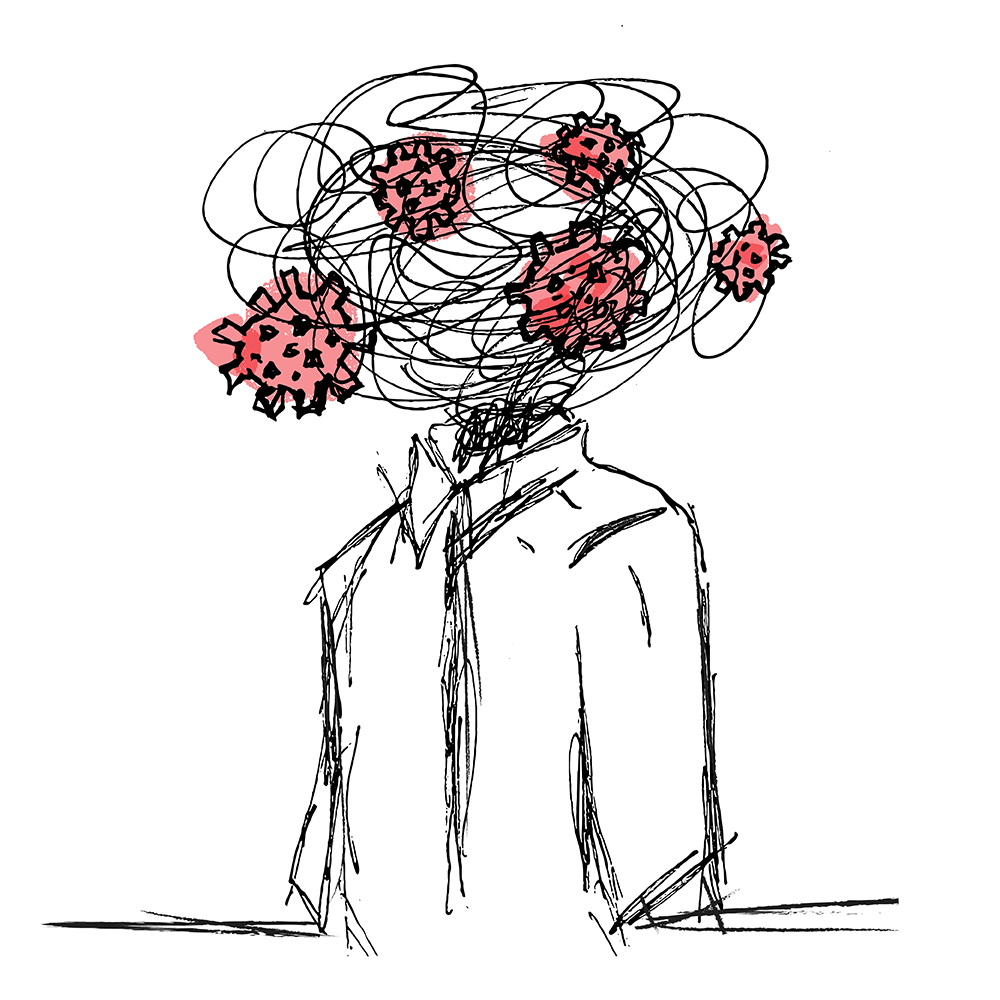
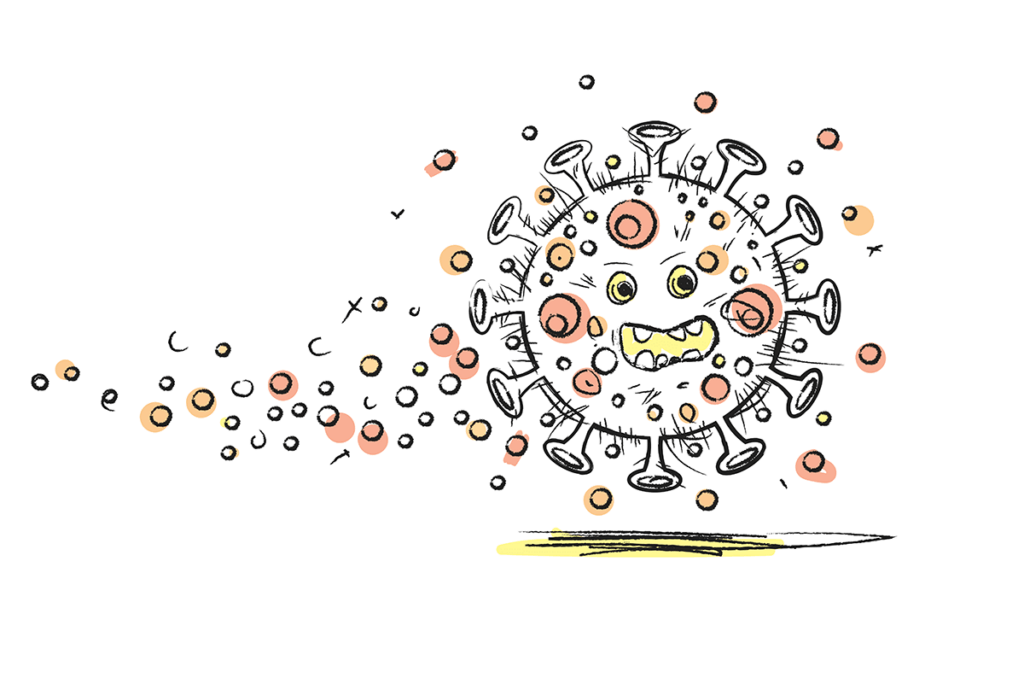
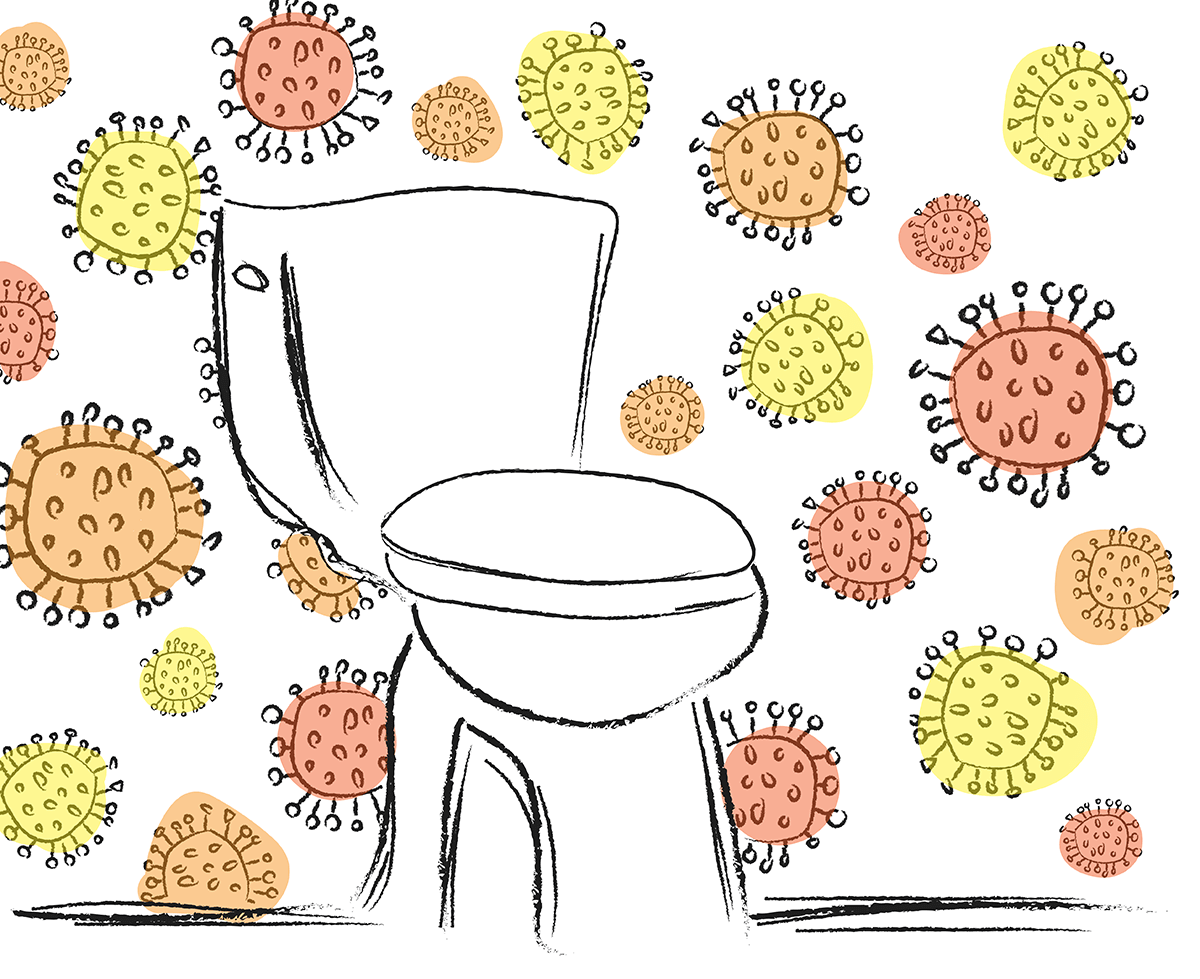
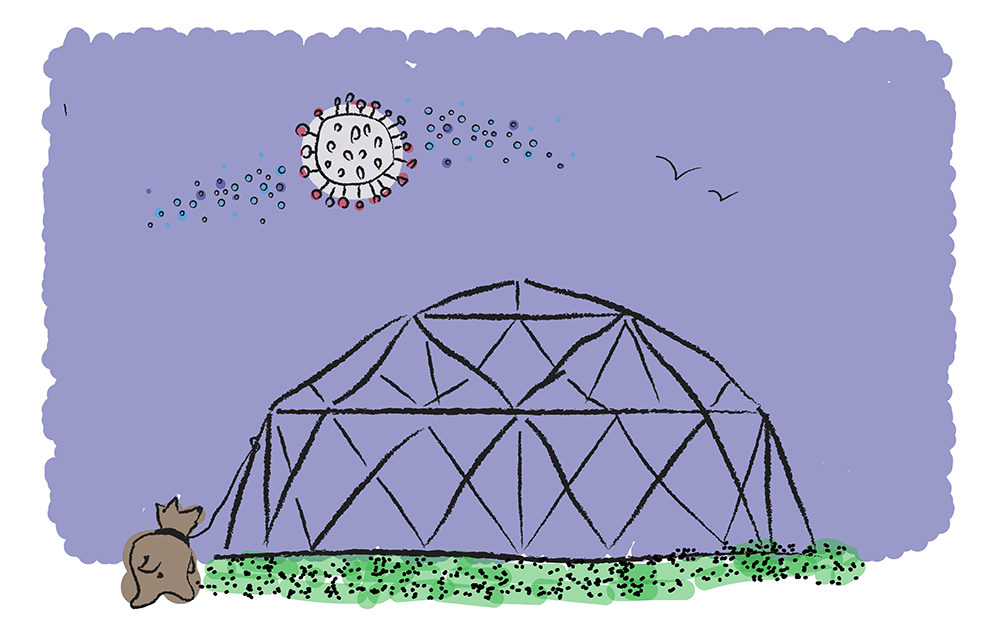
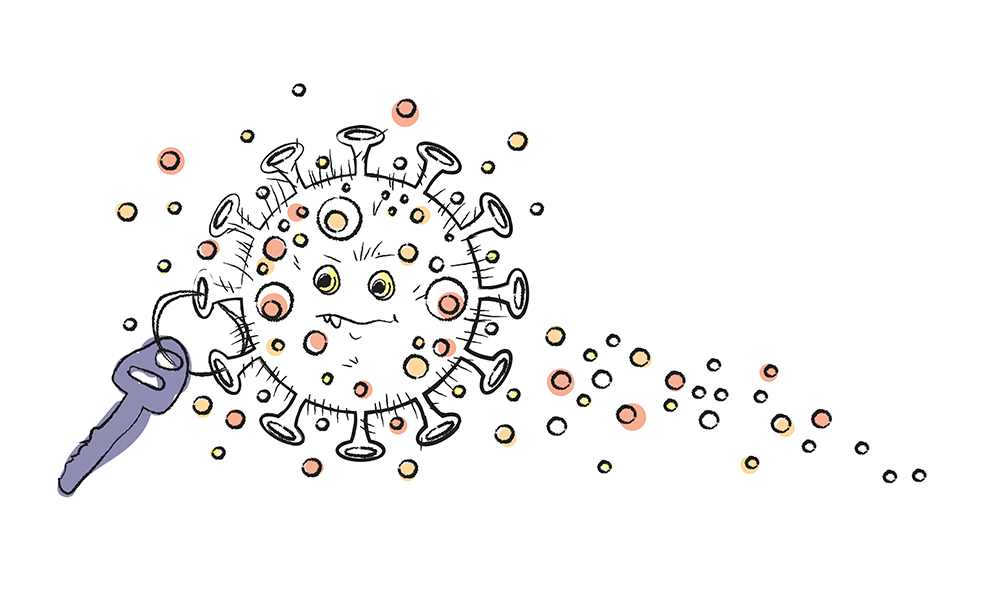
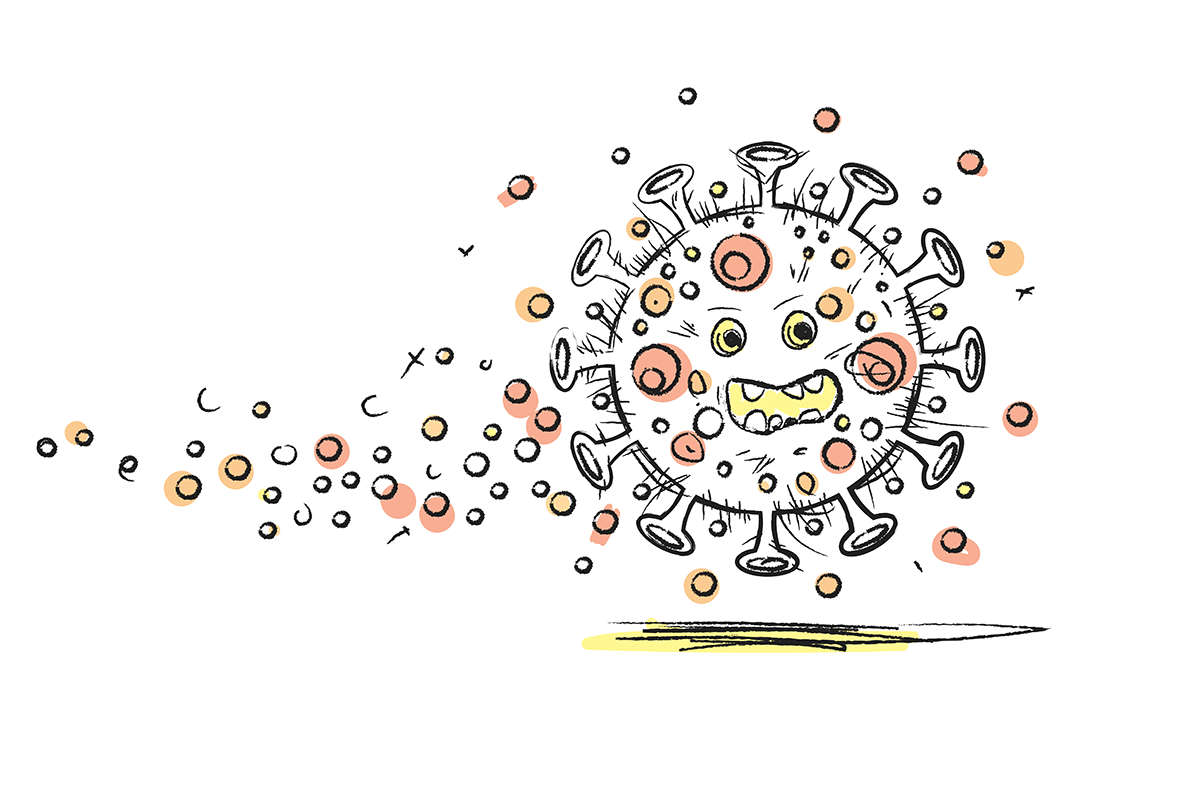
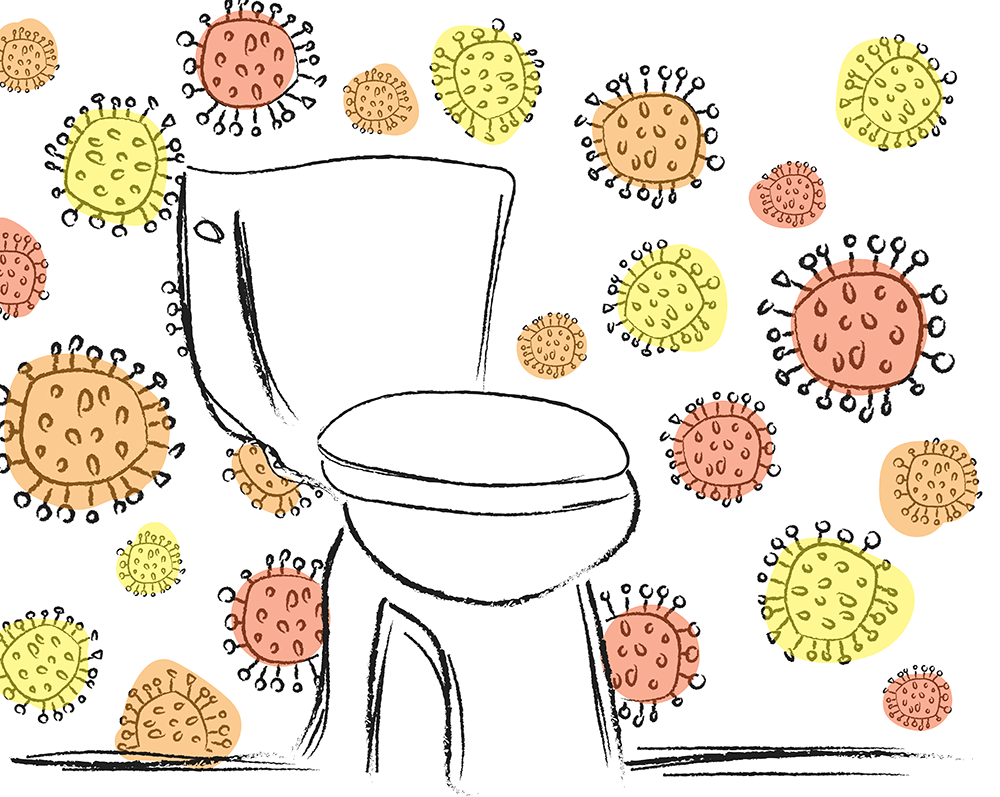


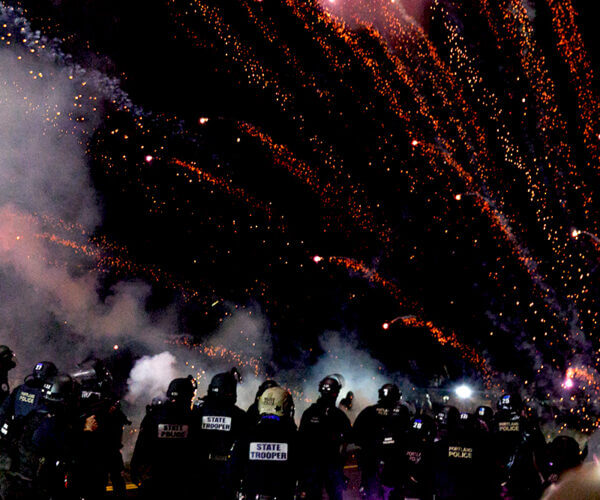








An amazing true story by an amazing writer and friend. Sorry you had such an awful experience, but thank goodness for your recovery.
Dear Greg, Thank you for writing on your COVID experience. I’m sorry you and your family had to go through it. Hugs to you all. Sandy Dubin
I love this story. I don’t what you sent your old professor or whether he was right or wrong about it (as if opinions of a writer’s work can be binary) but I’ll be seeking more of your work having read this beautifully told tale. Thanks!